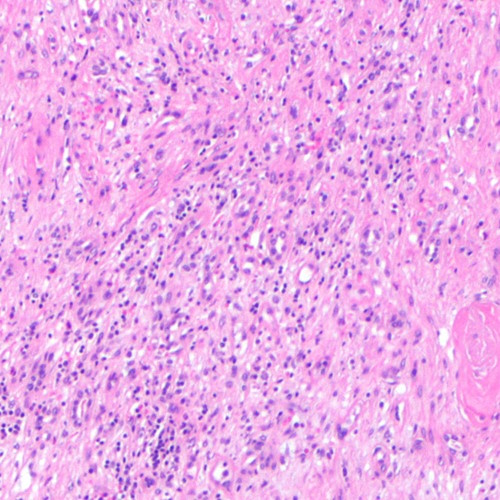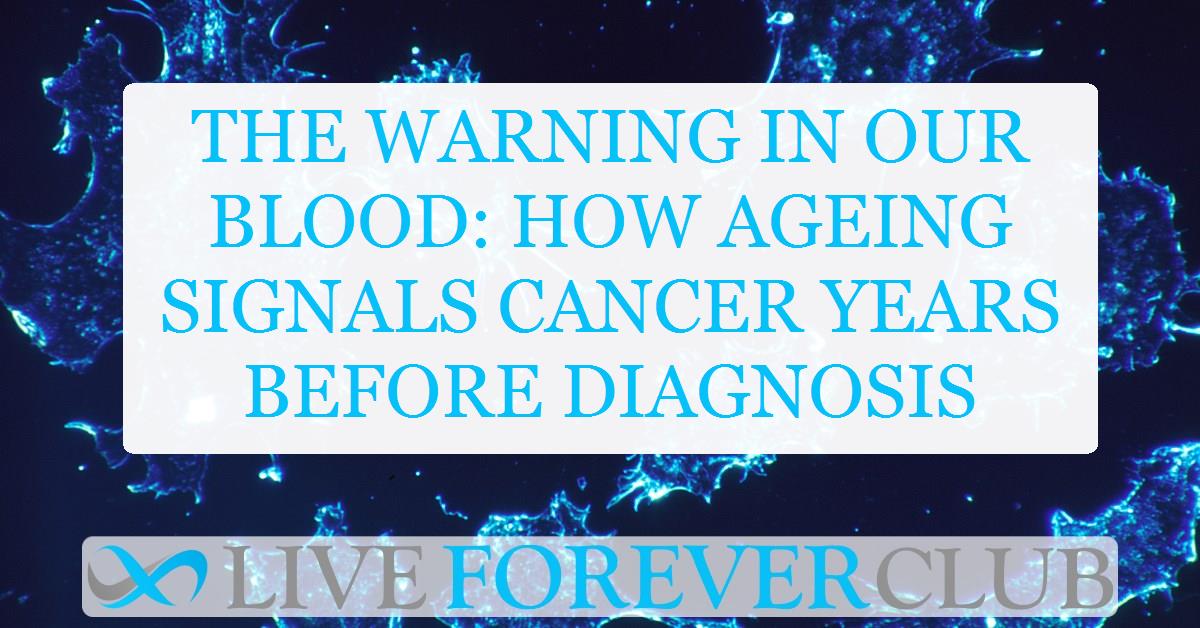Ageing shifts the immune system. It becomes less stable, more chaotic. Scientists from Stanford found a powerful sign of this shift: cytokines in the blood rise up to four years before cancer appears—only in people over 80.
Cytokines Speak Before Cancer Arrives
Cytokines are tiny messengers in our immune system. They call cells into action during inflammation or infection. But what if they whisper about cancer before any tumor is found?
The Stanford-Ellison longitudinal study followed 133 healthy people for nine years. Researchers tracked 32 different cytokines in the blood. In those aged 80 and above, levels of these molecules began to rise years before any cancer diagnosis.
In people under 80, the rise did not happen. The immune system of the elderly seems to respond to something invisible—perhaps small clusters of transformed cells. These changes were not random. A broad pattern emerged.
Inflammation, But Only in the Oldest
Data showed that this “cytokine surge” happened only in those over 80. It didn’t matter if they had skin, colon, or breast cancer. The common factor was age.
In samples taken two years before cancer diagnosis, 26 of the 32 tracked cytokines rose significantly. These included well-known inflammatory signals like IL-6, IL-1β, TNF-α, and interferon-γ. Even anti-inflammatory ones, like IL-10, increased.
In contrast, individuals under 80 with future cancer showed no such spike. The immune system seems to ignore—or not sense—cancer in its early stages until very late in life.
Surge Fades After Tumor Removal
The surge isn’t permanent. After the cancer diagnosis—likely after surgery or treatment—the cytokine levels dropped.
This suggests that the tumors themselves triggered the immune response. The body was already fighting, long before doctors knew anything was wrong.
Interestingly, cardiovascular or inflammatory diseases did not show the same pattern. Only cancer triggered this type of long-lasting, measurable change in blood cytokines.
Cytokine Signals Mirror Tumor Behavior
Researchers didn’t stop at blood. They looked into tumor tissues from older patients using data from The Cancer Genome Atlas. In these early-stage cancers, cytokine gene expression was much higher in patients aged 80 and above.
This pattern was consistent across ten cancer types, including lung, breast, colon, and kidney. The same molecules that spiked in blood also surged in tumor tissues. The tumor and the blood seemed to speak the same language.
Cellular Ageing Fuels the Fire
One molecule stood out—CDKN1A, also known as p21. This gene signals cellular senescence. As cells age or face damage, they stop dividing and begin releasing inflammatory molecules. This is called SASP, the senescence-associated secretory phenotype.
Older tumor tissues had more p21 expression. They also produced more cytokines. This suggests a loop—senescent cancer cells spark inflammation, which in turn may support tumor growth.
The correlation between cytokines and p21 held strong, even in patients under 80. So, while the blood signal was age-restricted, the underlying biology spanned all ages.
Eighty Is the Turning Point
The rise in cytokines, senescence signals, and inflammation didn’t increase gradually with age. Instead, they stayed low until about age 80, then spiked sharply.
Researchers divided participants into age groups and saw the pattern clearly. Below 80, changes were minor. After 80, everything accelerated: inflammation, p21, cytokine transcription—all climbed.
This non-linear change highlights why the immune system might behave so differently in very old people.
Blood Tests Could Predict Cancer Early
Could this help detect cancer early in the elderly? The researchers think so.
They tested whether serum cytokine abundance could predict future cancer. It worked best within one year before diagnosis. Accuracy was high, with an AUROC score of 0.89.
If validated in larger, more diverse populations, this method could help catch cancers before they grow too large—especially in older adults with limited treatment options.
Immune System as a Cancer Alarm
For decades, scientists have tried to catch cancer early using blood tests. Some use DNA fragments or methylation patterns. Others track protein markers like CA-125.
This study adds a new possibility: using the immune system as a signal amplifier. Cytokines may rise in response to small, undetectable tumors. The body might sense what scanners miss.
Ageing, Senescence, and the Inflammation Loop
The findings suggest a vicious cycle. As we age, cells accumulate damage. Some enter senescence and begin secreting inflammatory molecules. This inflammation might help early tumors grow. In turn, tumors release more cytokines, amplifying the signal.
Over time, this loop may make both cancer and inflammation worse.
Future Possibilities and Open Questions
Can doctors use cytokines to detect cancer before symptoms appear? Can they block the senescence signal to slow tumor growth? Could this model apply to younger patients with accelerated biological ageing?
These questions remain open, but the implications are clear.
In people over 80, the body may whisper warnings years before cancer becomes visible. All we have to do is listen.
The study is published in the journal PNAS. It was led by from Stanford University School of Medicine.







